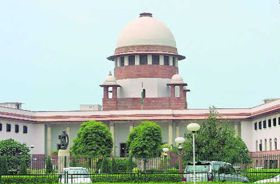
Pervin Malhotra
Q.What exactly is engineering physics? How is it different from pure physics? — Farhan Quereshi
A.Unlike traditional engineering disciplines, engineering physics /science is not necessarily confined to a particular branch of science or physics. Instead, it provides a more thorough grounding in applied physics for specific specialties such as optics, quantum physics, materials science, applied mechanics, nanotechnology, micro-fabrication, mechanical engineering, electrical engineering, biophysics, control theory, aerodynamics, energy, solid-state physics, etc.
Engineering physics seeks to create and optimise engineering solutions through greater understanding and integrated application of mathematical, scientific, statistical, and engineering principles. The cross-functional discipline also bridges the gap between theoretical science and practical engineering with emphasis on R & D and analysis. For instance, the programme at IIT includes several physics courses as well as courses from other disciplines unlike in MSc (physics). However, the programmes differ significantly from one IIT to another. While some may have substantial amount of electronics in the curriculum, another one may have material science, and yet another one may have courses from a diverse set of disciplines. So, please read the JEE brochure, or visit the website for more details before deciding which program matches your interests.
Decoding JNU dual-degree courses
Q.Can you please throw some light on the new dual-degree programmes being offered by JNU?
— karunesh govil
A.The 5-year dual degree programmes being offered by Jawaharlal Nehru University’s School of Engineering are fairly unique.
The two programmes for 2018-19 are:
n BTech in Computer Science & Engg and MS/MTech in Social Sciences/ Humanities/ Science/ Technology
n BTech in Electronics & Communication Engg and MS/MTech in Social Sciences/ Humanities/ Science/ Technology
Selection: JEE Mains 2018 merit. Counselling will also be done through JoSAA/CSAB.
These unique programmes will equip students with the necessary tech skills while simultaneously focusing on their application to the sustainable development of society. In the first half of the dual-degree programme, students undertake a compulsory foundation courses in basic sciences, humanities, social sciences and engineering sciences besides departmental requirements in the core engineering discipline.
You can choose open category electives from a pool of courses to develop a broad inter-disciplinary knowledge base so that you have the opportunity of pursuing MS/ MTech in an area outside your parent discipline.
In the fourth and fifth year, you can participate in projects/dissertations and courses in the humanities, international studies, sciences, languages, linguistics and social sciences to acquaint yourself with these frontier areas. In short, you’ll be able to address the dynamics of economics, physical, biological and environmental phenomena through the prism of engineering.
This holistic learning approach will make you a better problem solver -- armed with the tools to optimise profits, minimise costs, analyse various scenarios, forecast fluctuations in business cycles, and more.
Inexpensive coaching
Q.Can you please suggest some low-cost alternative to expensive coaching / tuition for two students in my neighbourhood whose financial state is not very good? They are both bright and promising students and I would like to help them but don't know how.
— arunima john
A.Yes, finally there’s a substitute/supplement to expensive tuition classes for the kids you mention.
There’s a wealth of IIT-Professor-Assisted Learning (PAL) video lectures for Class XI and Class XII which can be accessed on YouTube. Many faculty members from various IITs have contributed to creating these excellent lectures. Prof. Ravi Soni from the D/o Physics, IIT Delhi is the national coordinator of this project which has been funded by MHRD. A number of top teachers from the Kendriya Vidyalayas have also been roped in to supplement the NCERT curriculum.
Students can access over 600 hours of lectures in physics, chemistry, maths & biology.
Some links to check out are:
Biology: Channel 19
www.youtube.com/channel/UCqiFTyCxFFMAN_lhAzIkdpA/videos
Chemistry: Channel 20
www.youtube.com/channel/UC3Zv0XxBjYlWMjbMv8ODE8Q/videos
Maths: Channel 21
www.youtube.com/channel/UCfz4W0rG8HoyyrrK6qNc1rA/videos
Physics: Channel 22
www.youtube.com/channel/UCwNr8peMxn8-Nc2V_RZsRvg/videos
These videos can also be accessed on Door Darshan, Free Dish DTH.
The complete list of videos is available on (Channel 19, 20, 21 & 22)
www.swayamprabha.gov.in/index.php/ch_allocation
Do pass on this information to your friends/relatives and their needy children.



























